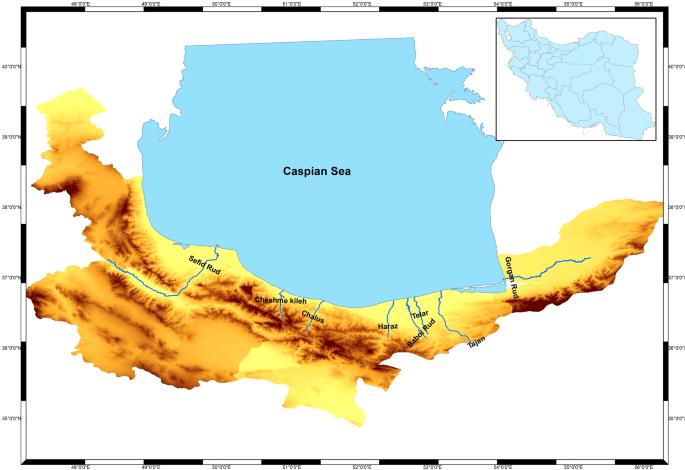Geospatial investigation on self-purification capacity of river Estuaries in the Caspian region: reducing heavy metals pollution
IF 10.4
1区 工程技术
Q1 ENGINEERING, CHEMICAL
引用次数: 0
Abstract
In today’s context, the adoption of sustainable wastewater treatment methods is crucial. River estuaries have the potential to offer an economically viable and environmentally friendly solution for wastewater treatment through the flocculation of pollutants. This study investigates the role of river estuaries flowing into the southern part of the Caspian Sea in the treatment of heavy metals. Two sets of experiments were designed for this purpose. The first set involved adjusting a series of discrete aquaria in various salinity regimes, while the second set utilized only one aquarium. The results from the first set indicate the capacity of the studied estuaries to remove heavy metals through the flocculation process in the following order: Zn (70%) > Mn (60%) > Cu (49%) > Pb (24%) > Ni (19%). However, the removal rates in the second set were reduced as follows: Zn (57%) > Mn (56%) > Cu (40%) > Pb (20%) > Ni (17%). It was observed that the flocculation process exhibits an unstable nature. Furthermore, the findings reveal that heavy metals flocculation primarily occurs upstream of the estuary. However, instability in the flocculation process occurs downstream, where water parameters undergo drastic changes. Statistical analyses indicate that an increase in pH plays a significant role in the destabilization of flocs. Conversely, the initial concentration of heavy metals, dissolved oxygen, and redox potential have a positive impact on the flocculation process.

里海地区河口自净能力的地理空间调查:减少重金属污染
在当今时代,采用可持续的废水处理方法至关重要。河口有可能通过絮凝污染物为废水处理提供经济可行且环保的解决方案。本研究调查了流入里海南部的河口在重金属处理中的作用。为此设计了两组实验。第一组涉及在不同盐度条件下调整一系列离散的水族箱,而第二组只使用了一个水族箱。第一组实验的结果表明,所研究的河口通过絮凝过程去除重金属的能力按以下顺序排列:锌(70%);锰(60%);铜(49%);铅(24%);镍(19%)。然而,第二组的去除率降低如下:锌(57%);锰(56%);铜(40%);铅(20%);镍(17%)。据观察,絮凝过程具有不稳定性。此外,研究结果表明,重金属絮凝主要发生在河口上游。然而,絮凝过程的不稳定性发生在下游,因为那里的水体参数发生了急剧变化。统计分析表明,pH 值的增加对絮凝体的不稳定性起着重要作用。相反,重金属的初始浓度、溶解氧和氧化还原电位对絮凝过程有积极影响。
本文章由计算机程序翻译,如有差异,请以英文原文为准。
求助全文
约1分钟内获得全文
求助全文
来源期刊

npj Clean Water
Environmental Science-Water Science and Technology
CiteScore
15.30
自引率
2.60%
发文量
61
审稿时长
5 weeks
期刊介绍:
npj Clean Water publishes high-quality papers that report cutting-edge science, technology, applications, policies, and societal issues contributing to a more sustainable supply of clean water. The journal's publications may also support and accelerate the achievement of Sustainable Development Goal 6, which focuses on clean water and sanitation.
 求助内容:
求助内容: 应助结果提醒方式:
应助结果提醒方式:


